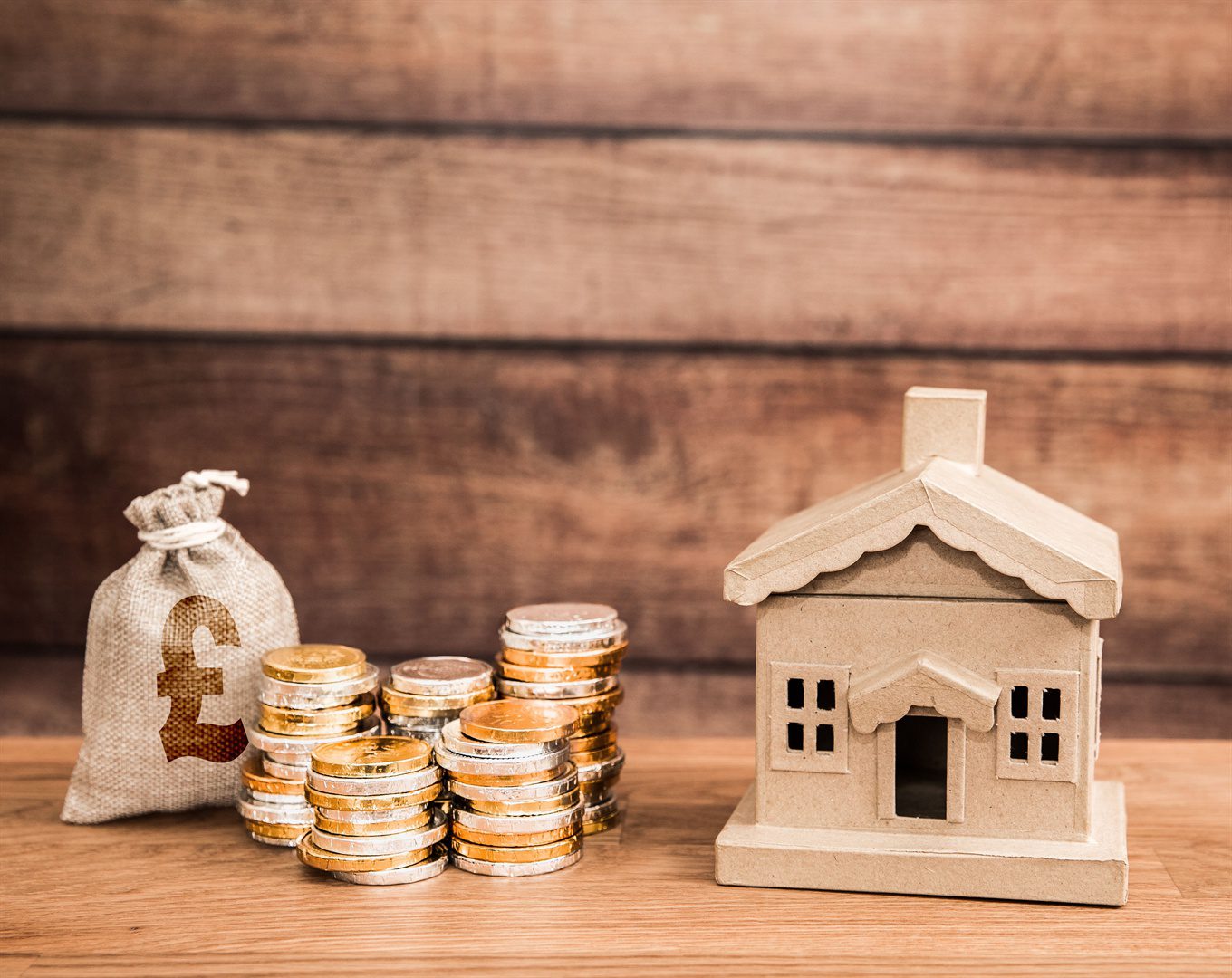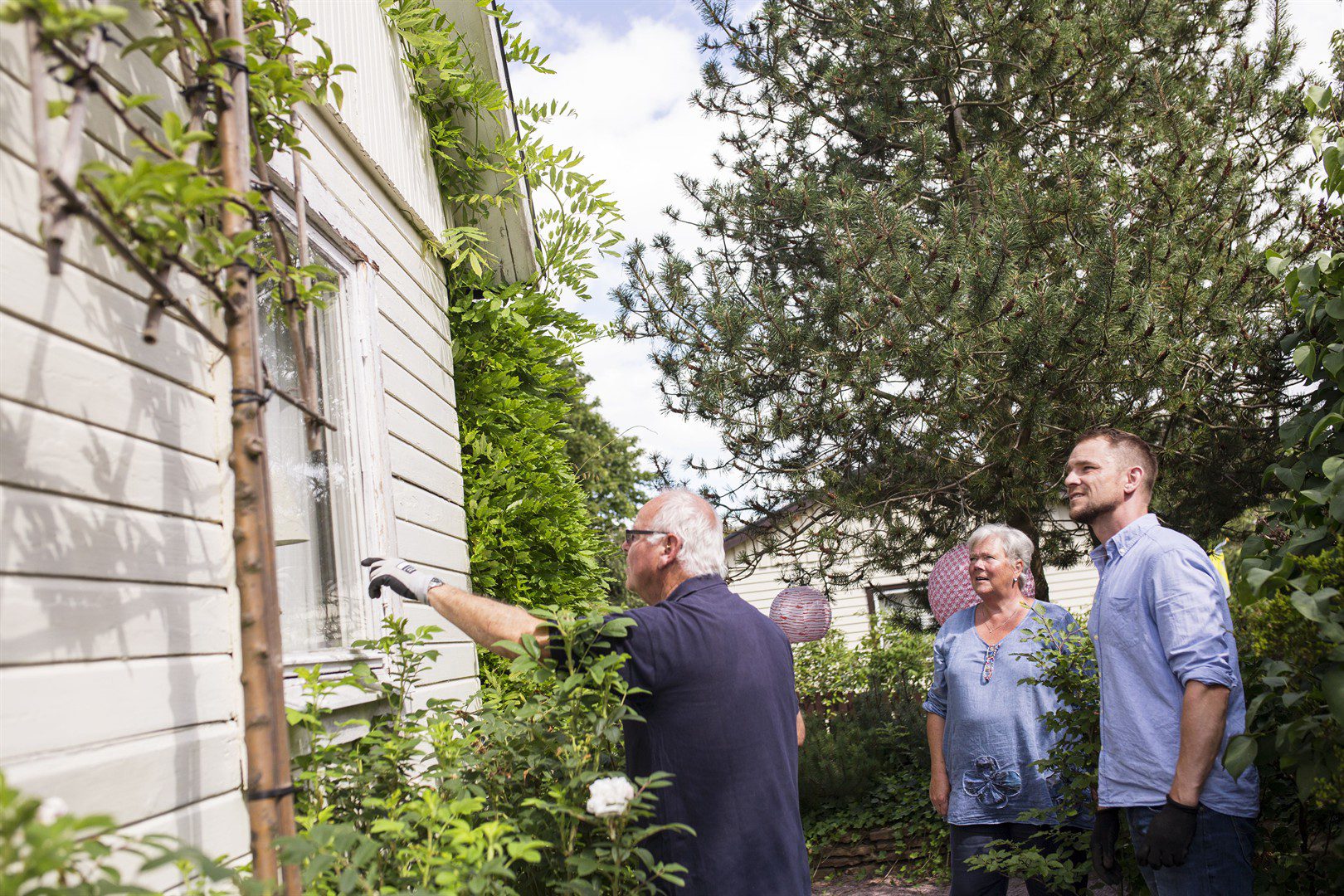
Buying a house is a significant milestone. It is essential to start with thorough research. Begin by understanding the market trends in your area of interest. This will help you gauge property prices, neighborhood dynamics, and the overall market condition. Take your time to explore different neighborhoods, compare home prices, and identify what fits within your budget. Researching upfront gives you a clear idea of what to expect and prepares you for the next steps.
Understanding the home-buying process is key to making informed decisions. Researching, getting pre-approved, working with an agent, and knowing how to make an offer are all vital steps. Each of these steps ensures that you are prepared and confident as you move forward in your home-buying journey.

Setting a realistic budget is essential to a successful home-buying experience. By understanding your financial situation, considering all costs, getting pre-approved, and planning for the future, you can confidently determine how much you can afford. This ensures that your home purchase is both financially sustainable and aligned with your long-term goals.
Setting a realistic budget is one of the first steps in buying a home. Start by assessing your financial situation. Consider your income, savings, debts, and credit score. Your credit score will affect the interest rate on your mortgage, so it is important to know where you stand. Take a close look at your monthly expenses and determine how much you can afford to spend on a mortgage each month. This will help you set a budget that is sustainable and within your means.
When setting your budget, it is important to consider all the costs involved in buying a home. Beyond the mortgage, there are additional expenses such as property taxes, homeowner’s insurance, and maintenance costs. You will also need to budget for closing costs, which can include fees for inspections, appraisals, and legal services. By accounting for these costs early on, you will have a clearer picture of what you can truly afford. It is better to be prepared than to be caught off guard by unexpected expenses.
As mentioned earlier, getting pre-approved for a mortgage is a crucial step in setting a realistic budget. The pre-approval process gives you a clear idea of how much you can borrow, based on your financial situation. This will help you avoid looking at homes that are out of your price range. With a pre-approval in hand, you can focus on properties that fit within your budget. This not only saves you time but also sets you up for success when it is time to make an offer.
When setting your budget, it is important to think about the future. Consider how your financial situation might change over the next few years. Are you planning to start a family, change jobs, or make other major life changes? These factors can impact your ability to afford your mortgage payments. It is wise to leave some room in your budget for future expenses. This way, you will be better prepared to handle any changes that come your way without putting your home at risk.

Choosing the right location is crucial when buying a house. It affects your daily life, your home’s value, and your overall satisfaction. Consider proximity to work and amenities, research future growth, and evaluate the lifestyle and safety of the neighborhood to make the best choice.
When buying a house, one of the most critical decisions you will make is choosing the right location. The location of your home affects everything from your daily commute to the value of your investment. It is essential to carefully evaluate your needs and preferences when selecting a neighborhood.
One of the first things to consider is how close the location is to your workplace. A short commute can save you time, reduce stress, and even lower transportation costs. Besides work, think about how close you are to essential amenities like grocery stores, schools, and healthcare facilities. Living near these conveniences can make your daily life much easier and more enjoyable.
It is also important to think about the future growth potential of the neighborhood. Areas with planned developments, such as new shopping centers, schools, or public transportation, are likely to increase in value over time. Researching city plans or talking to a local realtor can give you insight into how the area may evolve in the coming years. This foresight can be crucial in making a smart investment.
Your home’s location also impacts your lifestyle. Consider the neighborhood’s vibe – is it bustling or serene? Does it fit your lifestyle preferences? Additionally, safety is a top priority. Look into the crime rates and the general sense of security in the area. A neighborhood that aligns with your lifestyle and offers a sense of security will contribute to your overall happiness and satisfaction with your new home.

Finding your ideal home requires a clear understanding of your needs, balancing your budget with desired features, and seeing homes in person. Be prepared to act quickly in a competitive market to secure the home that meets your criteria.
Once you have selected the perfect location, the next step is finding a home that meets your needs. Start by making a list of your must-haves and nice-to-haves. This list will help you stay focused and avoid getting overwhelmed by the many options available.
When searching for your ideal home, it is important to balance your budget with the features you desire. While it is tempting to stretch your budget for that perfect kitchen or extra bedroom, staying within your financial limits is crucial. Consider what features are essential for your lifestyle and which ones you can compromise on. This approach will help you find a home that fits both your needs and your budget.
Seeing a home in person is essential to determine if it truly meets your expectations. Attend open houses and schedule private viewings to get a feel for the layout, size, and condition of the home. Pay attention to details like natural lighting, storage space, and the overall flow of the house. These aspects can significantly impact your comfort and satisfaction with the home.
In a competitive housing market, homes can sell quickly. If you find a home that checks all your boxes, be prepared to make an offer promptly. Work with your realtor to ensure your offer is strong and competitive, giving you the best chance of securing your ideal home. It is essential to act swiftly but also to make sure you are making a well-considered decision.

Making an offer on a house is a significant step in the home-buying process. It is when you tell the seller you are serious about purchasing their property. But making an offer involves more than just stating a price. You need to consider various factors to ensure your offer stands out and protects your interests. Here is how to navigate this crucial stage.
The first thing to do is research the current market conditions. Is it a buyer’s or seller’s market? In a seller’s market, where demand exceeds supply, you may need to offer close to or even above the asking price. In a buyer’s market, where there are more homes available than buyers, you may have more room to negotiate. Understanding the market will help you craft a competitive offer.
Your offer price is one of the most critical aspects of the offer. It is not just about what you can afford but also about what the property is worth. Your real estate agent can help you determine a fair offer price based on comparable sales in the area, the condition of the property, and how long it has been on the market. Offering too low can offend the seller, while offering too high could leave you overpaying.
Conditions are the fundamental things that must be met for the sale to proceed. Common conditions include financing, inspection, and appraisal. A financing condition ensures you can back out of the deal if you can’t secure a mortgage. An inspection condition allows you to renegotiate or cancel the offer if significant issues are found during the home inspection. Including conditions can protect your interests, but in a competitive market, too many conditions might weaken your offer.
In addition to the price, several factors can make your offer more attractive to the seller. A larger earnest money deposit shows you are serious about the purchase. A flexible closing date can accommodate the seller’s timeline. Writing a personal letter to the seller, explaining why you love the home, can also make a difference. However, be cautious with personal letters as they may lead to unintended biases.

Home inspections and due diligence are essential steps to ensure you are making a sound investment. These processes help you uncover any issues with the property before the sale is finalized. Here is how to approach this critical phase of buying a home.
A home inspection is a thorough examination of the property’s condition by a licensed inspector. The inspector checks the structure, roof, plumbing, electrical systems, and more. Scheduling a home inspection soon after your offer is accepted is crucial. This allows you to identify any issues that may require repairs or impact the value of the home.
During the inspection, the inspector will walk through the property, checking for visible and hidden problems. You will receive a detailed report outlining any issues found. While no home is perfect, the inspection report will help you understand the property’s condition. It is important to attend the inspection if possible, as this allows you to ask questions and gain firsthand knowledge of any concerns.
If the inspection reveals significant problems, you have a few options. You can request the seller to make repairs, ask for a reduction in the purchase price, or even walk away from the deal if the issues are too severe. Your real estate agent will guide you through negotiating these terms. In some cases, the seller may offer a credit at closing instead of making repairs, allowing you to handle the issues after the sale.
Beyond the home inspection, due diligence involves researching other aspects of the property. This may include reviewing the home’s title to ensure there are no liens or disputes, checking for any zoning restrictions or future developments in the area, and confirming that the property is not in a flood zone. Due diligence is about gathering all the information you need to make an informed decision.

Closing the deal on your new home is the last major step before you officially become a homeowner. This stage involves signing a lot of documents, transferring funds, and getting the keys to your new property. It is essential to understand each part of the closing process to ensure everything goes smoothly. Here is what you need to know about closing the deal.
The first step in closing the deal is reviewing all the documents. These include the closing disclosure, loan documents, and the purchase agreement. Each of these documents contains important information about your mortgage, the property, and the terms of the sale. Make sure you read everything carefully and ask questions if something is unclear. This is your last chance to make sure everything is in order before signing.
Another critical part of closing is paying closing costs. These are fees associated with your mortgage and the purchase of your home. They can include things like loan origination fees, appraisal fees, title insurance, and more. Typically, closing costs range from 2% to 5% of the home’s purchase price. It is essential to understand what these costs are and how they will be paid. Your lender should provide you with a detailed breakdown of these costs, so there are no surprises on closing day.
Once everything has been reviewed and agreed upon, it is time to sign the documents. This includes your mortgage note, deed of trust, and other essential papers. Signing these documents legally transfers ownership of the property to you and finalizes your mortgage agreement. It is a significant moment because, after this, the home is officially yours.
After all the documents are signed, and the funds have been transferred, the final step is getting the keys to your new home. This is when you can officially move in and start enjoying your new property. It is the moment when all your hard work and planning pay off. However, remember that the closing process can sometimes take a few hours, so be prepared for a bit of a wait on closing day.

After closing the deal, it is time to move into your new home. Moving can be both exciting and overwhelming, but with a little planning, you can make the process smoother. Once you have moved in, it is essential to take steps to settle in and make your new house feel like a home. Here is how to do it.
The first step in moving into your new home is planning the move itself. This includes packing your belongings, hiring movers, and setting up utilities. Start by making a checklist of everything you need to do before moving day. This will help you stay organized and ensure that nothing is forgotten. Do not forget to label your boxes and pack a “first-day” box with essentials like toiletries, snacks, and basic kitchen items.
Before you move in, make sure all utilities are set up and ready to go. This includes electricity, water, gas, internet, and cable. Contact your utility providers at least a week before moving day to ensure everything is connected. It is also a good idea to change the locks on your new home for added security. By taking care of these details ahead of time, you can settle into your new home without any disruptions.
Once you have moved in, the next step is arranging your furniture and unpacking your belongings. Start with the most important rooms, like the kitchen, bedroom, and bathroom. This will help you create a comfortable living space quickly. Do not feel pressured to unpack everything at once; take your time and make sure everything is placed where you want it. Remember, this is your home, so arrange it in a way that feels comfortable and suits your lifestyle.
After you have settled in, take some time to explore your new neighborhood. Introduce yourself to your neighbors, visit local shops, and find nearby parks or recreational areas. Getting to know your surroundings will help you feel more connected to your new community. It is also a great way to discover new places and make your new house feel like a home.

In conclusion, buying a house is an exciting yet complicated journey. By understanding the entire process, you can make informed decisions every step of the way. Setting a realistic budget is crucial, as it helps you avoid financial strain while allowing you to explore various options. Choosing the right location is equally important, as it impacts your lifestyle and the future value of your investment.
Once you have found your ideal home, making a competitive offer can set the stage for a successful purchase. Remember, home inspections are vital to uncover any hidden issues and ensure your investment is sound. As you approach the closing process, reviewing all documents carefully will help you avoid surprises.
Finally, after closing the deal, moving in should be an exciting experience. Setting up your new home and acclimating to your neighborhood can lead to a fulfilling lifestyle. Always stay informed and seek professional guidance when needed, as this will empower you throughout the process. By following these steps and utilizing the tips provided in this guide, you will be well-prepared to navigate the home-buying journey confidently. Your dream home awaits – happy house hunting!
Subscribe to our newsletter to see the latest blogs
My services for the seller include initial consultation, market analysis, free estimate, make pricing strategy, home staging consultation, repairs and improvements consultation, professional photography and videography, detailed property description, customized marketing plan, online listings, social media marketing, design and print flyers and brochures, open houses and private showings, ongoing communication and feedback, continuous market monitoring, offer management, negotiation with buyers, counteroffers and finalization, transaction coordination, closing assistance with thirty-parties, and future real estate needs assistance.
This full suite of services is designed to make the selling experience smooth, rewarding, and successful. By partnering with Adam Cui, you are getting a knowledgeable, resourceful, and committed agent who will prioritize your interests and make sure your goals are met efficiently.
My services for the buyer include initial consultation, needs assessment, property search and selection, early access to listing, personalized tours, detailed market analysis, property transaction history research, property inspection coordination with thirty-parties, review of disclosures with third-parties, negotiation on inspection findings, custom offer preparation, expert negotiation, multiple offer handling, detailed contract explanation, legal and compliance assistance with third-parties, liaison with all parties, document assistance, final visits support, homeownership guidance, and lifetime real estate support.
Through each step, my goal is to minimize stress, streamline your home-buying experience, and deliver outstanding value within my 0.88% commission. Whether you are a first-time buyer or a seasoned investor, you can count on my expertise, dedication, and personalized care to make your real estate journey a success.
No. It only applies to the buying and selling property transactions. For rental services, I will charge half of the one-month rent if I represent one party.
No. HST will be added on top of that.
As a buyer, you typically do not pay my 0.88% commission directly. This commission is generally covered by the seller in a real estate transaction.
As your dedicated real estate agent, my priority is to provide you with the best possible service and value. If a seller offers a commission greater than 0.88% for my services, I would still honor my commitment to you, the buyer, and keep only 0.88% as my commission.
The home buying process involves several steps: getting pre-approved for a mortgage, finding the right property, making an offer, and completing inspections. Afterward, you will finalize the mortgage, sign the paperwork, and get the keys. It is essential to have guidance through each step to ensure a smooth and successful purchase.
When making an offer, it is important to consider the market conditions and the property’s value. Consult with your real estate agent to craft a competitive offer. Include necessary contingencies like financing and inspections. Always be prepared to negotiate. This ensures your offer stands out while protecting your interests.
Finding the right home starts with understanding your needs and budget. I will guide you through the process, showing you options that match your criteria. Together, we will explore neighborhoods, amenities, and property features. My goal is to help you find a home where you can see yourself living happily for years to come.

I will reach you back as soon as possible. If you are in a hurry, please press the button below to give me a call now.